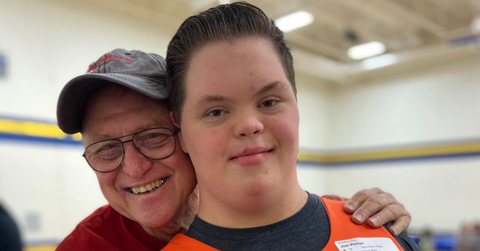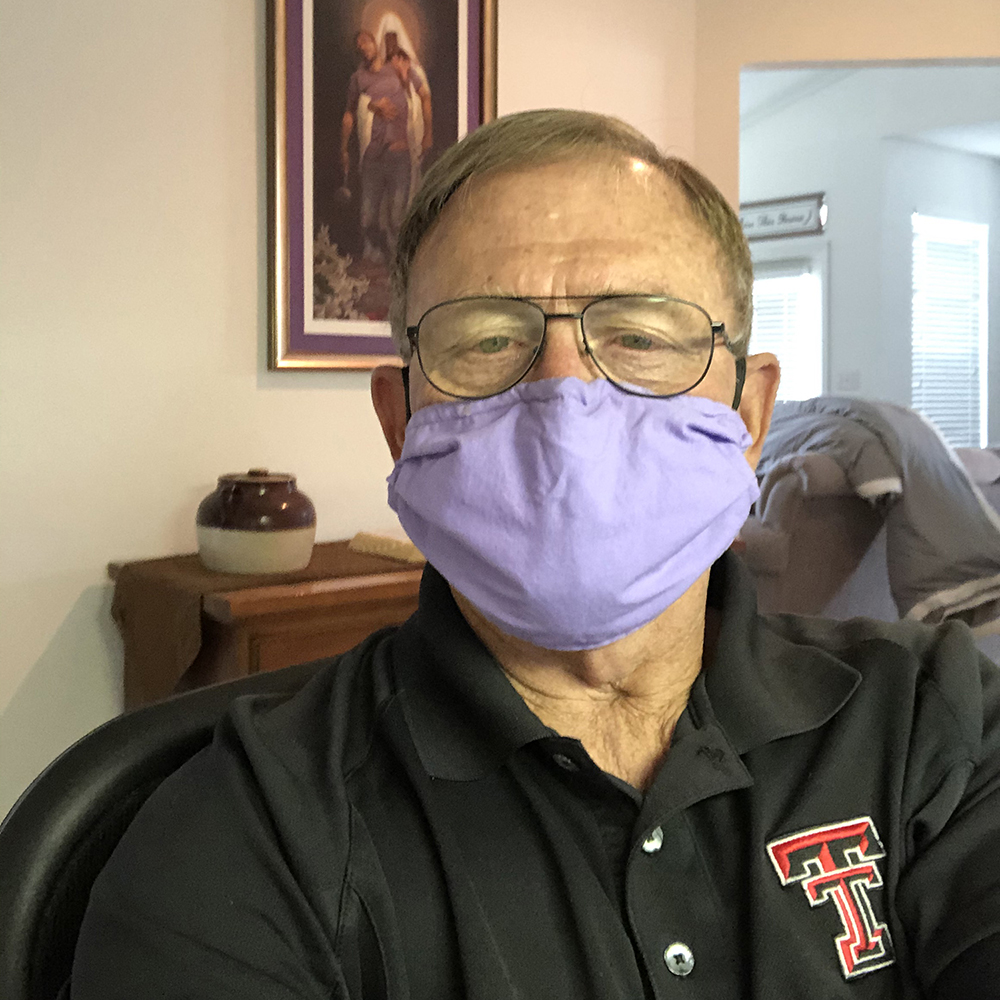The Reason I Wear a Mask

The reason I wear a mask isn’t to protect you or me, even though it should be. I wear a mask to protect my son, Joel, who has Down syndrome. In many ways, he is the most healthy and functional person that I know. Oh, he has his faults: like most teens he plays music I don’t like and watches too many movies. Yet, every day he does his best to live and be happy; and that’s enough. He knows how the world works and he knows how to get what he needs. He is quite simply a joyful guy and innocent beyond anything I could ever achieve this side of heaven. He is my inspiration and my hero. He’s the reason I wear a mask.

You should know that when I see any of you out in public without a mask, I wish you could have the opportunity to meet Joel. If you got to know him, my guess is you would not want to put him at risk. It really doesn’t matter what your reason is for not wanting to wear a mask. I can tell you that if Joel saw you without one, he’d probably offer his to you. Then he’d give you a smile that would make you wish you’d considered him and others more than whatever reason you hold for not wearing a mask.
One thing Joel and I know is that life isn’t fair. It’s not fair that God chose me to be Joel’s Dad. To know the grit that is a gift to Joel and to me. It’s not fair that I get to talk everyday with him and hear his stories about little things that put my day in perspective. It’s not fair that COVID-19 has helped me realize what a privilege it is to hug your son or to share a meal in person or to go to a movie in a theater. Some might say it’s not fair that Joel has Down syndrome and that those like him are 10 times more likely to die if they get COVID-19 than the general population.
It’s not fair that I have the joy of protecting my son and others at higher risk simply by wearing a mask. Every day, I have the awesome privilege and sacred duty to put on my mask and save lives. No, life isn’t fair. It is precious and I know if you’re reading this that you know just how much Joel means to me. Please wear your mask.
Billy Philips, Ph.D., is the Texas Tech University Health Sciences Center (TTUHSC) executive vice president for Rural and Community Health.
In findings that could place another group onto the COVID at-risk list, researchers in the United Kingdom estimated in a research letter published that adults with Down syndrome are at almost five times the risk for COVID-19–related hospitalization and 10 times the risk for related death. The study, published in the Annals of Internal Medicine and led by researchers from the University of Oxford.
Related Stories
Celebrating Veterans: TTUHSC’s General Martin Clay’s Legacy of Service and Leadership
From his initial enlistment in the Army National Guard 36 years ago to his leadership in military and civilian health care management roles, Major General Martin Clay’s career has been shaped by adaptability, mission focus and service to others.
Texas Tech University Health Sciences Center School of Nursing Named Best Accelerated Bachelor of Science in Nursing Program in Texas
The TTUHSC School of Nursing Accelerated Bachelor of Science in Nursing (BSN) program has been ranked the No. 1 accelerated nursing program in Texas by RegisteredNursing.org.
TTUHSC Names New Regional Dean for the School of Nursing
Louise Rice, DNP, RN, has been named regional dean of the TTUHSC School of Nursing on the Amarillo campus.
Recent Stories
National Academy of Inventors Names TTUHSC Faculty Senior Members
The National Academy of Inventors (NAI) has designated two current and one former TTUHSC faculty researchers as Senior Members.
The John Wayne Cancer Foundation Surgical Oncology Fellowship Program at Texas Tech University Health Sciences Center Announced
TTUHSC is collaborating with the John Wayne Cancer Foundation and has established the Big Cure Endowment, which supports the university’s efforts to reduce cancer incidence and increase survivability of people in rural and underserved areas.
TTUHSC Receives $1 Million Gift from Amarillo National Bank to Expand and Enhance Pediatric Care in the Panhandle
TTUHSC School of Medicine leaders accepted a $1 million philanthropic gift from Amarillo National Bank on Tuesday (Feb. 10), marking a transformational investment in pediatric care for the Texas Panhandle.
